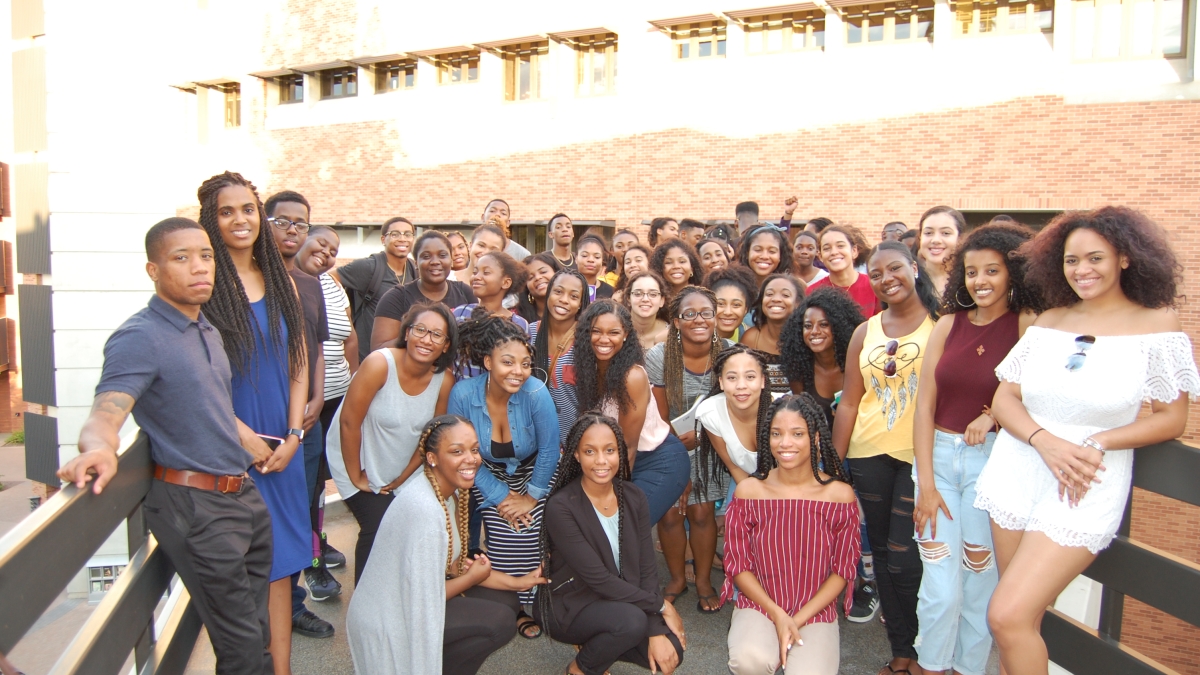Editor's note: This is the second in a series of profiles on ASU's diverse student coalitions.
Learn more about the Asian/Asian Pacific American Student Coalition here.
The Black African Coalition (BAC) at Arizona State University has been in existence for more than two decades and is as popular as ever, supporting its 22 student organizations educationally, financially and politically.
Nearly 350 students are currently a part of the organization that strives to unite black and African students across all of ASU's campuses. Below, BAC president and history major Navona Carter shares more information about the group.
Question: How did the Black African Coalition start?
Answer: The Black African Coalition was started in 1991 after a racially motivated assault took place at the former Greek Row. The African-American students on campus felt unsafe and didn't feel there was a vehicle of support to ensure their voices were a part of the solution to the troubled race relations on campus during that time. They formed together to create a student-led organization that could work with the administration to improve the cultural experience of all students at ASU.
Q: What kind of activities does the coalition host?
A: The BAC participates in highlighted events around campus such as Homecoming, in addition to planning university-wide Black History Month events. All other programming throughout the year comes from the member organizations under the BAC.
Q: What's your favorite part about the Black African Coalition?
A: The BAC provides a space for African-American students to learn and grow at the university. Most importantly, the BAC helps students build community.
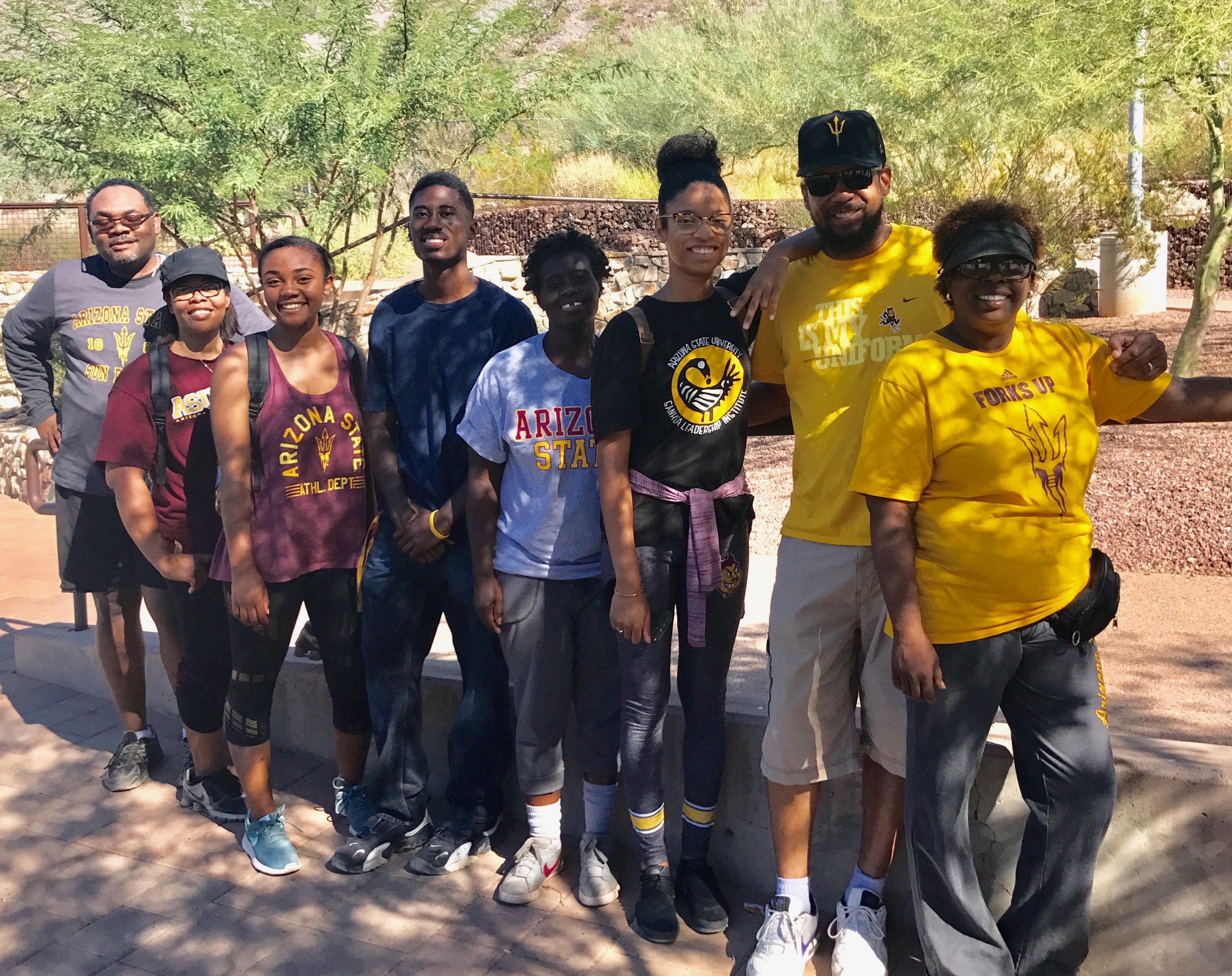
Parents and members of the Black African Coalition pose near "A" Mountain after hiking the mountain on Family Weekend.
Q: What's the biggest challenge your coalition has faced while you've been here?
A: ASU is the largest public institution in the nation; however, black and African-American students make up roughly 4 percent of the student population. Given those numbers, it can sometimes be challenging to connect students to the network BAC has created. Regardless of the challenges, BAC continues to grow daily and connect with students across all four campuses.
Q: What's your weekly schedule look like?
A: I typically hold seven office hours per week while also having meetings and sending emails in between classes.
Q: Do you have any events coming up?
A: BAC is currently planning Black History Month events that will follow the Harlem Renaissance era. Black History Month events will take place throughout all ASU campuses. In addition, the BAC is also involved in executing large-scale holistic programming for all students.
Q: How can people get involved?
A: Students can be involved in the Black African Coalition by requesting membership on SunDevilSync, as well as attending our events and general body meetings.
Q: Is there anything else you’d like to people to know about the BAC?
A: Student can connect with us on Instagram or visit our website!
Top photo: Students and leaders participate in the Sankofa Summer Leadership Institute, a five-day residential program for incoming black and African-American freshmen.
More Sun Devil community
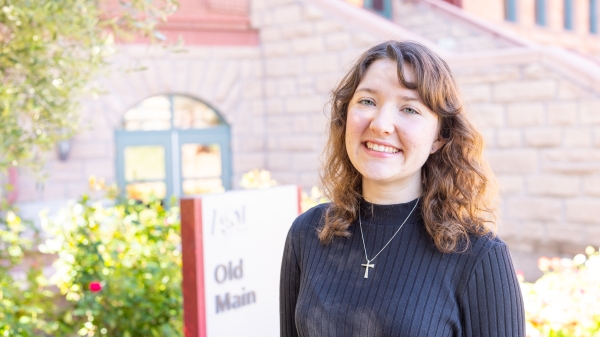
ASU graduate's journey from Zoom to global discourse
Editor’s note: This story is part of a series of profiles of notable spring 2024 graduates. Arizona native Eden Smith started her educational journey at ASU during the COVID-19 pandemic on Zoom and…
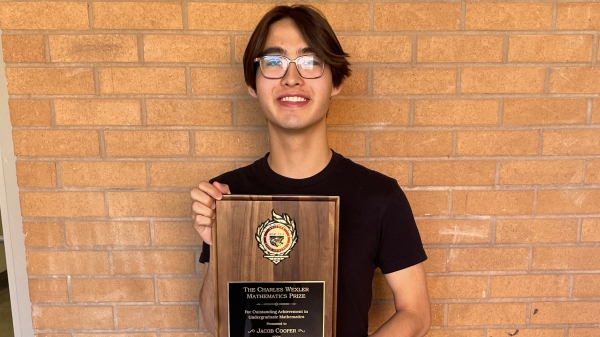
Charles Wexler prize recipient finds passion for math at ASU
Editor’s note: This story is part of a series of profiles of notable spring 2024 graduates. Jacob Cooper initially enrolled as a computer science major at Arizona State University, but after taking…
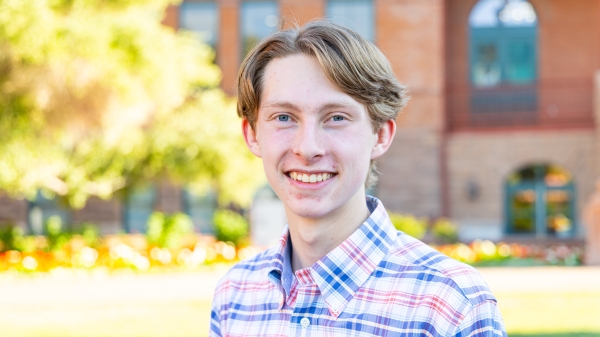
Dean's medalist plans to pursue PhD in mathematics
Editor’s note: This story is part of a series of profiles of notable spring 2024 graduates. Scottsdale, Arizona, native Ethan Leventhal started as a math major because he loved math but wasn’t sure…
